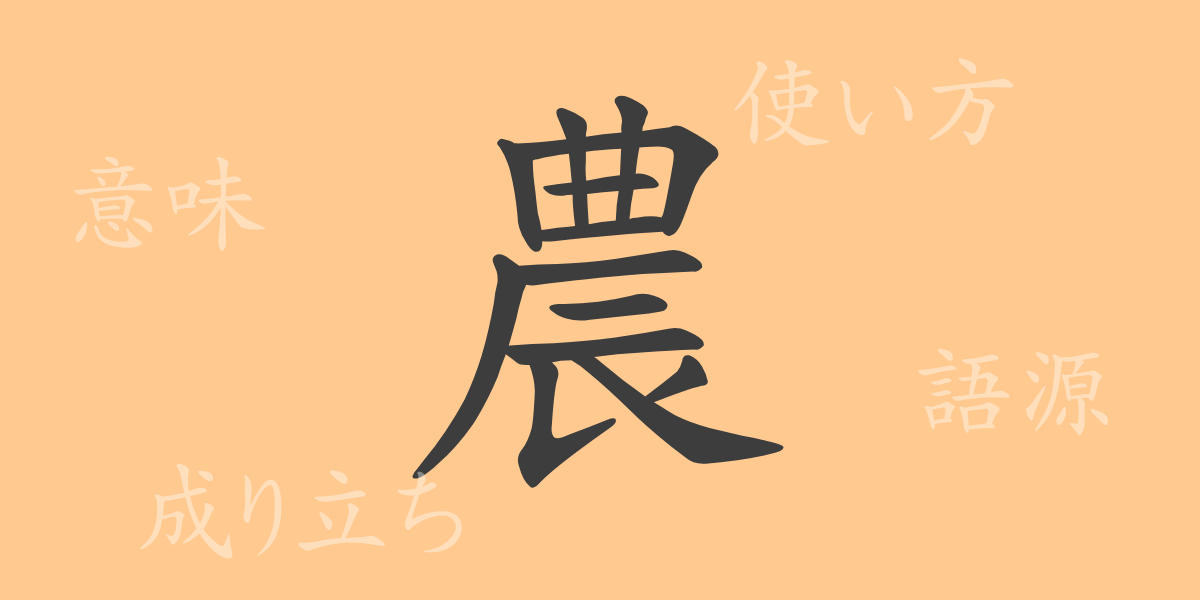The Kanji deeply rooted in Japanese culture and history carry significant meanings. Among them, ‘農 (のう)’ symbolizes essential aspects of food culture, industry, and daily life. This article delves into the hidden history and meaning of this common Kanji, ‘農’, and its importance in the lives of the Japanese people.
Origins of ‘農 (のう)’
Exploring the origins of the Kanji ‘農’ takes us back to ancient Chinese history. This character, which evolved from pictographs, is based on the lives of people engaged in farming. The agricultural cycle—tilling fields, planting seeds, and harvesting—is encapsulated in this single character.
Meaning and Usage of ‘農 (のう)’
‘農’ refers to all concepts related to agriculture. This includes the cultivation of crops, livestock farming, and forestry, making it a word that signifies the core activities of food production. More broadly, it also applies to rural areas, farmers, and agricultural products, covering various aspects related to agriculture.
Reading, Stroke Count, and Radical of ‘農 (のう)’
The Kanji ‘農’ carries fundamental elements used in Japanese.
- Readings: On’yomi ‘ノウ’; no specific Kun’yomi
- Stroke Count: 13 strokes
- Radical: 里(さと)部
Phrases, Idioms, and Proverbs Using ‘農 (のう)’
There are numerous phrases, idioms, and proverbs in Japanese that include ‘農’. For example, ‘農耕民族 (のうこうみんぞく)’ refers to people who rely primarily on agriculture for their livelihood, and ‘農閑期 (のうかんき)’ denotes the period when farming activities slow down, offering more free time. Additionally, the proverb ‘農夫の知恵 (のうふのちえ)’ praises wisdom and knowledge based on experience rather than academic learning.
Conclusion on ‘農 (のう)’
The Kanji ‘農’ carries a meaning beyond just a character. It symbolizes agriculture, which is deeply connected to people’s lives, culture, and economic activities, and is embedded in our daily existence. From this single character, we can gain insights into food safety, coexistence with nature, and sustainable living.

























